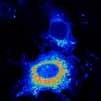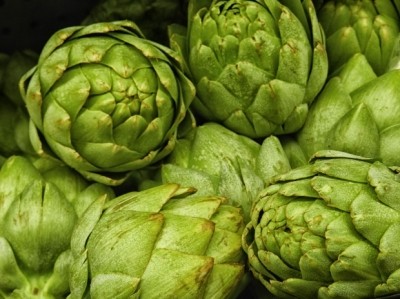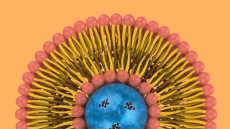Dietary antioxidants may help slash pancreatic cancer risk: EPIC data

The study – published in Gut – uses data from a UK arm of the European Prospective Investigation of Cancer (EPIC) study.
Led by Dr Andrew Hart from the University of East Anglia, UK, the research team investigated the lifestyle and dietary factors associated with pancreatic cancer – finding that antioxidant vitamins C, E, and selenium are associated with lower incidence of the condition.
Speaking with NutraIngredients, Dr Hart explained that the Norfolk arm of the EPIC study consists of a group of nearly 24,000 people from the Eastern area of the UK.
“This group is a bit special in the EPIC study in that they completed very detailed food assessment diaries rather than the standard food frequency questionnaires,” says Hart.
The study leader noted that no other studies investigating dietary antioxidants and cancer have used a 7-day food diary – which can be considered the most accurate method of measuring diet in large-scale epidemiological studies.
“So obviously the EPIC Norfolk study had an opportunity to get a lot more detailed information on diet.”
“Using these food diaries we are able to look at different food groups, so the first bit of work we have done is to look at antioxidants,” he revealed.
If the associations found in the study turn out to be causal, the researchers believe that one in 12 of all pancreatic cancers could be prevented by simply increasing dietary intake of the antioxidants vitamins C, E, and selenium.
Diet and cancer
Pancreatic cancer is responsible for more than a quarter of a million deaths per year around the globe.
The disease has the worst prognosis of any cancer, with just 3% of people surviving beyond five years.
Whilst genetic predisposition, smoking, and type 2 diabetes are all major risk factors for pancreatic cancer, it is also thought that diet could play a role in disease incidence, and may explain why rates vary so much from country to country, according to Hart.
Study details
The team tracked the health of 23 658 40 to 74 year olds – who entered the Norfolk arm of the EPIC study between 1993 and 1997. Each participant filed a comprehensive food diary, detailing the types and amount of every food they ate for seven days, as well as the methods they used to prepare it.
Each entry was then matched to one of 11,000 food items, and the nutrient values calculated using a specially designed computer programme (DINER).
“Because these people had the food diaries we were able to see very accurately what they were eating and were able to compare that to other people – to look for important differences,” said Hart.
In the follow up, the researchers found that 49 people developed pancreatic cancer within 10 years of entering the study, increasing to 86 by 2010. On average, participants survived six months after diagnosis, the study revealed
Nutrient intakes of those diagnosed with the disease within 10 years of entering EPIC were compared with those of almost 4,000 healthy people to see if there were any differences.
The analysis showed a weekly intake of selenium in the top quartile (top 25%) of consumption roughly halved their risk of developing pancreatic cancer compared with those whose intake was in the bottom quartile.
In addition, those with the highest intakes of vitamins C, E, and selenium were 67% less likely to develop pancreatic cancer than those in the lowest intake category.
“It seems like the antioxidants are knocking out the pro-oxidants that are perhaps causing the damage that leads to cancer, and therefore playing a protective role,” said Hart.
However the UK-based researcher was quick to point out: “From one study we can’t show it is a causal link, we need similar studies in other populations that all show the same thing.”
“But what suggests that it may be a causal link – though we don’t know for sure – is that there are those biological mechanisms of deactivating the pro-oxidants … so it’s not just a chance finding, it does fit with a biological mechanism.”
Source: Gut
Published online ahead of print, doi: doi:10.1136/gutjnl-2011-301908
“Dietary antioxidants and the aetiology of pancreatic cancer: a cohort study using data from food diaries and biomarkers”
Authors: P.J.R. Banim, R. Luben, A. McTaggart, A. Welch, et al














